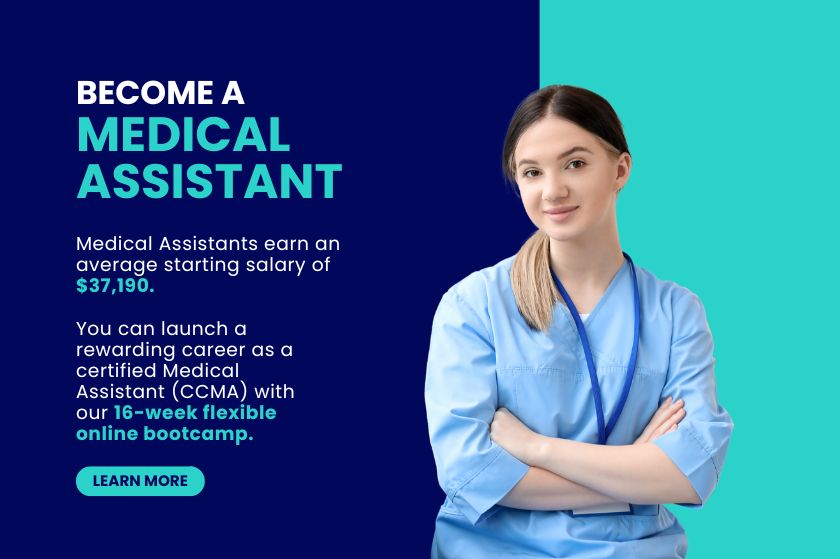The medical field offers a wide range of career opportunities, and for many, the dream of becoming a doctor is a lifelong ambition. While the path to becoming a doctor can be challenging and requires years of dedication, it is not impossible. Medical assistants, who play a vital role in healthcare settings, often wonder if they can pursue a career as a doctor. In this blog post, we will explore the steps that medical assistants can take to become doctors and the various pathways available to them.
Educational Requirements for Aspiring Doctors
Becoming a doctor is a significant undertaking that requires a strong educational foundation. Medical assistants looking to transition into a medical doctor role must first complete a bachelor's degree. While a specific undergraduate major is not required, it is advisable to choose a degree program in a science-related field, such as biology or chemistry, as it can provide a solid academic background for medical school prerequisites.
After obtaining a bachelor's degree, the next step is to gain admission to medical school. Medical school is highly competitive, and aspiring doctors must excel in their undergraduate studies to stand out as strong candidates. The Medical College Admission Test (MCAT) is a standardized test that assesses problem-solving, critical thinking, and knowledge of natural, behavioral, and social science concepts and principles. Scoring well on the MCAT is essential for gaining admission to medical school.
Once accepted into medical school, students complete a rigorous four-year program that combines classroom instruction with clinical rotations. The first two years typically focus on coursework covering topics like anatomy, physiology, pharmacology, and medical ethics. In the third and fourth years, students gain hands-on experience through clinical rotations in various medical specialties.
Choosing a Medical Specialty
After successfully completing medical school and earning a Doctor of Medicine (MD) or Doctor of Osteopathic Medicine (DO) degree, medical assistants have the opportunity to choose a medical specialty. Doctors can specialize in areas such as internal medicine, surgery, pediatrics, dermatology, and many more. Selecting a specialty often involves personal interests, aptitude, and the desire to make a specific impact in the medical field.
Medical assistants who have already worked in healthcare settings may have a better understanding of their interests and strengths, making it easier to choose a specialty that aligns with their goals. Specialization typically involves additional years of residency training in the chosen field, which provides further expertise and hands-on experience.
Licensing and Certification
After completing medical school and residency, aspiring doctors must obtain the necessary licenses and certifications to practice medicine legally. Licensing requirements vary by location, but they typically involve passing a series of licensing exams and meeting state-specific criteria. In the United States, for example, doctors must pass the United States Medical Licensing Examination (USMLE) or the Comprehensive Osteopathic Medical Licensing Examination (COMLEX-USA) to become licensed physicians.
Additionally, doctors may choose to become board-certified in their chosen specialty by passing specialty-specific board exams. Board certification demonstrates a doctor's commitment to excellence and ongoing learning in their field.
Gaining Practical Experience
Medical assistants who aspire to become doctors can leverage their prior experience in healthcare settings to gain a deeper understanding of patient care, medical procedures, and the healthcare system. This experience can be invaluable during medical school and residency, as it provides a foundation of practical knowledge and enhances clinical skills.
Moreover, medical assistants can network with colleagues, physicians, and healthcare professionals, which can lead to mentorship opportunities and valuable insights into the medical profession. Building a strong professional network can open doors to research opportunities, specialized training, and collaborations that can aid in career advancement.
Continuing Education and Professional Development
Becoming a doctor is just the beginning of a lifelong journey in the medical field. Continuing education and professional development are crucial for staying current with advances in medicine, new treatments, and evolving best practices. Medical assistants who transition to becoming doctors should embrace a commitment to ongoing learning and improvement.
Many medical associations and organizations offer opportunities for doctors to engage in continuing medical education (CME) activities and attend conferences to expand their knowledge and skills. Staying active in the medical community and participating in research and clinical trials can also contribute to professional growth and advancements in the field.
Get Started in Medical Assistance Today
If you're a medical assistant with aspirations of becoming a doctor, it's essential to start your journey with the right foundation. Consider enrolling in the Health Tech Academy Medical Assistant Bootcamp, where you can acquire valuable medical assistance skills. Here are a few benefits you can expect:
- Self-paced learning: Our program allows you to learn at your own pace, accommodating your busy schedule and ensuring you grasp the fundamental skills required in healthcare.
- One-on-one mentor sessions: Receive personalized guidance from experienced mentors who can help you chart your path from medical assistant to doctor.
- Continued support from career services: Our career services team will assist you in navigating the various steps required to transition into a medical doctor role, providing ongoing support and resources.

Take the first step towards your dream of becoming a doctor by joining the Health Tech Academy Medical Assistant Bootcamp. It's a rewarding journey that begins with building a strong foundation in medical assistance skills. Your future as a doctor awaits!


